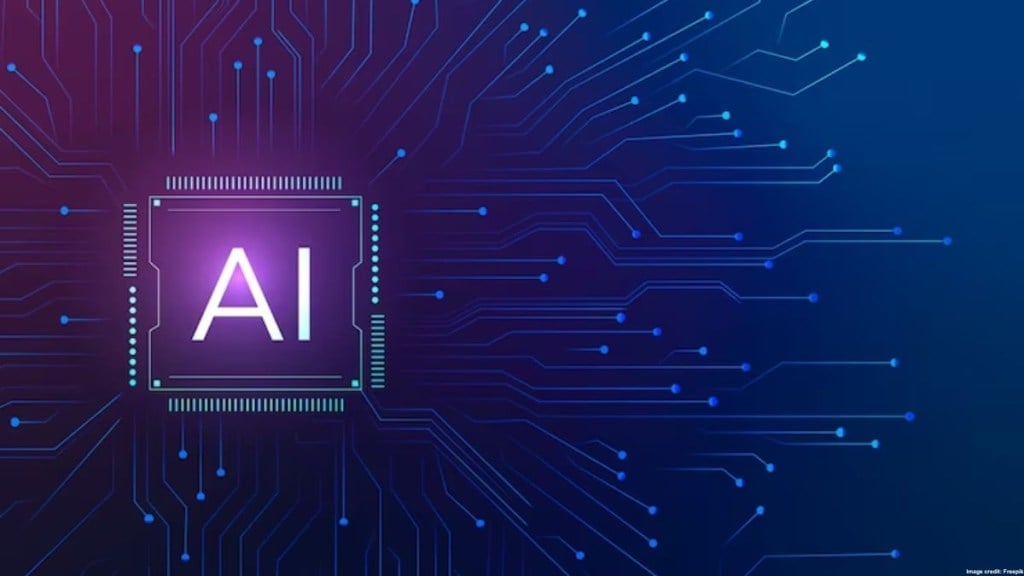By Ayush Atul Mishra
Artificial intelligence (AI) is driving a remarkable shift in the healthcare sector. One area where AI has made significant strides is remote patient care and telemedicine. With unparalleled accessibility, efficiency, and improved patient outcomes, AI technologies have revolutionized the way healthcare is provided. According to Grand View Research, in 2022, the market for artificial intelligence in healthcare was estimated to be worth USD 15.4 billion. The report further highlights that from 2023 to 2030, it is anticipated to grow at a CAGR of 37.5%. AI helps healthcare practitioners to give high-quality treatment regardless of geographic limitations, from improving diagnostic accuracy to enabling remote monitoring, virtual assistants, teleconsultations, and personalized medicine. Thus, by embracing AI, the healthcare sector is on the cusp of a disruptive era where technology-driven solutions are revolutionizing the patient experience and forming a brighter future for healthcare accessibility and delivery.
Here’s how AI is transforming remote patient care and telemedicine-
Improving Diagnostic Accuracy
AI-driven solutions have the remarkable ability to enhance the accuracy of diagnostics in remote patient care. By harnessing the power of machine learning algorithms, AI systems can analyze vast volumes of medical data, empowering medical professionals to make more precise diagnoses. A notable example is the analysis of images obtained from X-rays, MRIs, and CT scans, wherein AI systems can swiftly identify potential abnormalities for further evaluation by radiologists. This synergy expedites treatment decisions and significantly improves diagnostic accuracy, as it not only saves valuable time but also minimizes the likelihood of human error. Hence, through the integration of AI, remote patient care is fortified with advanced diagnostic capabilities, revolutionizing healthcare by providing timely and precise interventions.
Remote Monitoring and Predictive Analytics
The management of chronic diseases and the monitoring of patients outside traditional healthcare facilities have undergone a revolutionary change with the emergence of AI-enabled remote monitoring devices. Fitness trackers and smartwatches have become effective instruments for gathering and sending real-time health data to medical specialists. This data can be examined using cutting-edge AI algorithms to detect patterns, identify anomalies, and anticipate prospective health problems. Thus, through continuous remote monitoring, healthcare providers can proactively intervene, enabling early detection and intervention to prevent complications and reduce hospital readmissions. This remarkable synergy between AI and remote monitoring devices has opened up new frontiers in healthcare, enhancing patient care and improving outcomes.
Virtual Assistants and Chatbots:
Virtual assistants and chatbots have been effortlessly incorporated into telemedicine services and are now essential parts of modern healthcare. These AI-powered tools act as gateways for patients to get immediate access to medical information and individualized help. These virtual assistants can respond to simple medical questions, send timely medication reminders, and make personalized lifestyle suggestions. On the other hand, chatbots engage patients in interactive conversations while efficiently compiling crucial medical histories, evaluating symptoms, and assessing their medical conditions. By utilizing these technologies, the involvement of patients is significantly increased, and healthcare providers are freed from the strain of dealing with routine questions, allowing them to concentrate on more crucial activities.
Teleconsultations and Teleconferencing:
The introduction of AI has significantly improved teleconsultation services, completely changing how patients and healthcare professionals connect for virtual appointments. Doctors can now conduct thorough examinations, remotely evaluate physical symptoms, and have detailed conversations regarding treatment options using cutting-edge video conferencing technologies with artificial intelligence (AI) tools. AI systems even allow for real-time language translation, removing barriers based on language and guaranteeing that people of all backgrounds can access healthcare. The seamless integration of AI with teleconferencing has made it possible for patients in remote locations or with limited mobility to obtain specialized care without having to make hefty travel commitments.
Personalized Medicine and Treatment Recommendations
The remarkable ability of AI to handle massive volumes of patient data and draw relevant insights has ushered in a new era of personalized medicine. AI can detect patterns and correlations in patient health records, genetic information, lifestyle factors, and treatment outcomes using complex algorithms, allowing for the creation of actionable recommendations. This transformational ability ensures that healthcare interventions are effectively tailored to individual needs. As a result, AI-led personalized treatment recommendations analysis leads to more effective and focused healthcare interventions, revolutionizing the field of medicine.
Conclusion
AI is transforming remote patient care and telemedicine by improving diagnostic accuracy, enabling remote monitoring and predictive analytics, facilitating teleconsultations, and enabling personalized medicine. These developments can potentially enhance patient outcomes, increase access to healthcare services, and reduce the strain on healthcare systems. Furthermore, as AI evolves, addressing challenges such as data privacy, algorithm bias, and keeping the human touch in healthcare delivery is critical. With responsible implementation and continued innovation, AI will play a transformative role in shaping the future of remote patient care and telemedicine, ultimately benefiting patients and healthcare providers alike.
The author is co-founder and CEO, Tattvan E Clinics

